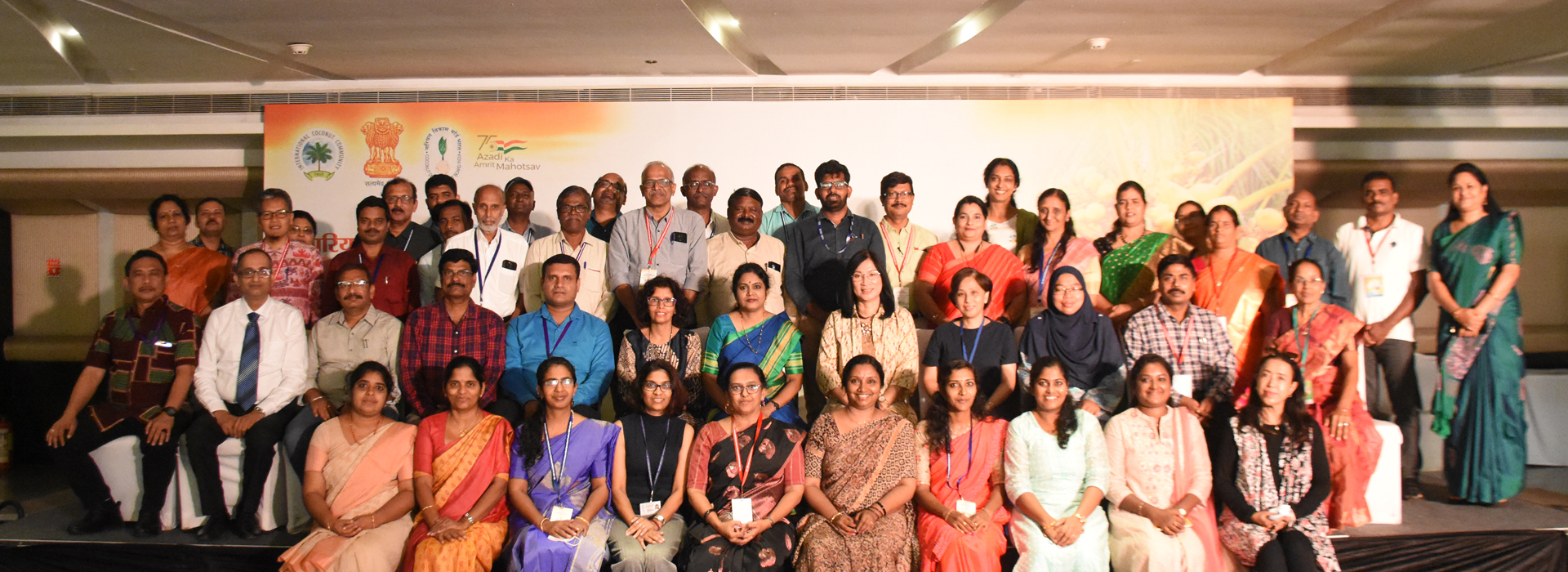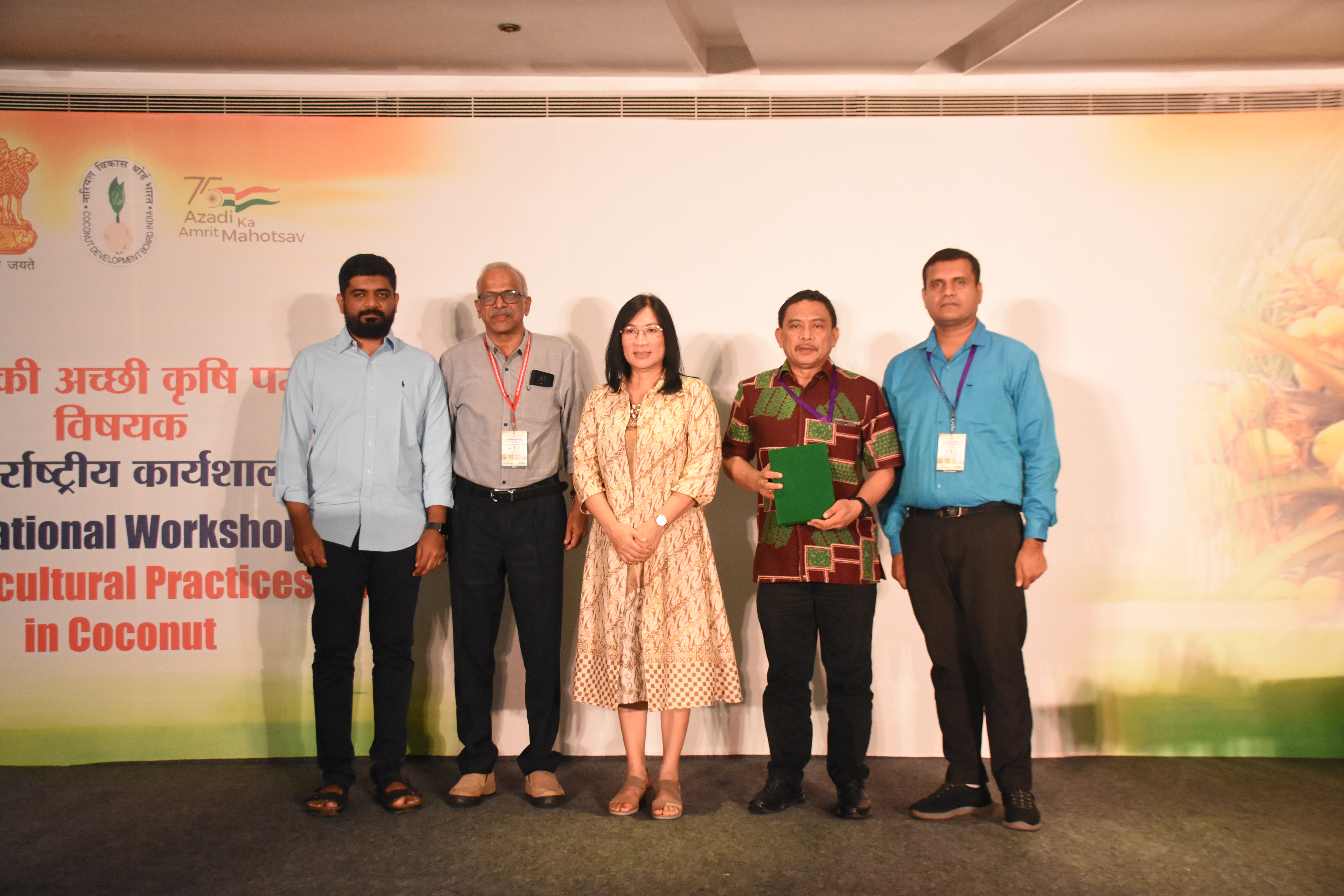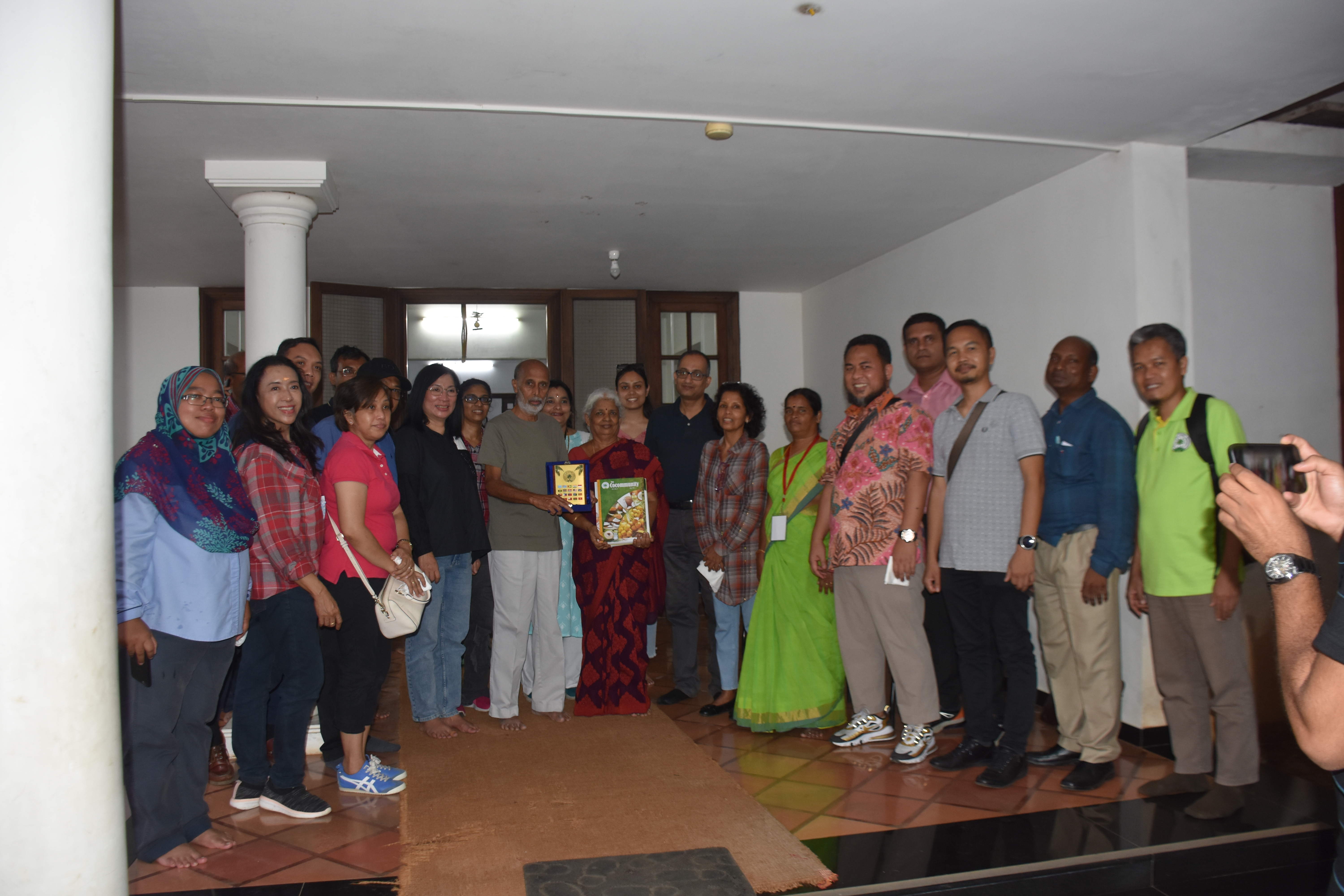International Coconut Community in association with the Government of India through Coconut Development Board organized a three-day International Workshop on Good Agriculture Practices (GAP) in coconut, at Le Meridian Kochi, Kerala, India from 2-4 September 2022 in a hybrid mode. The theme of the workshop was: Good Agricultural Practices for Coconut in Enhancing Production Efficiency, Product Quality and Resilience to Climate Change.
The general objective of organizing the workshop is to disseminate the knowledge on GAP for ‘Enhancing the level of management practices adopted in coconut gardens for higher quantity of quality nuts for better remuneration, in the wake of biotic & abiotic stresses amid climate change’.
The agronomists and related experts in the field of major coconut growing countries from India, Indonesia, Malaysia, Philippines, Sri Lanka, Thailand and Vietnam and international organization participated in the workshop and presented their most recent research and development in this sector. There were more than 125 participants joined physically as well as virtually. This workshop served as a venue for knowledge sharing amongst agronomists, soil science and related experts for establishing an international platform/network among ICC member countries to catalyse local/national innovation and action for scaling up climate smart agriculture for coconut and to Identify data and technology gaps, area for future research activities to develop improved GAP recommendation based on up to date research results.
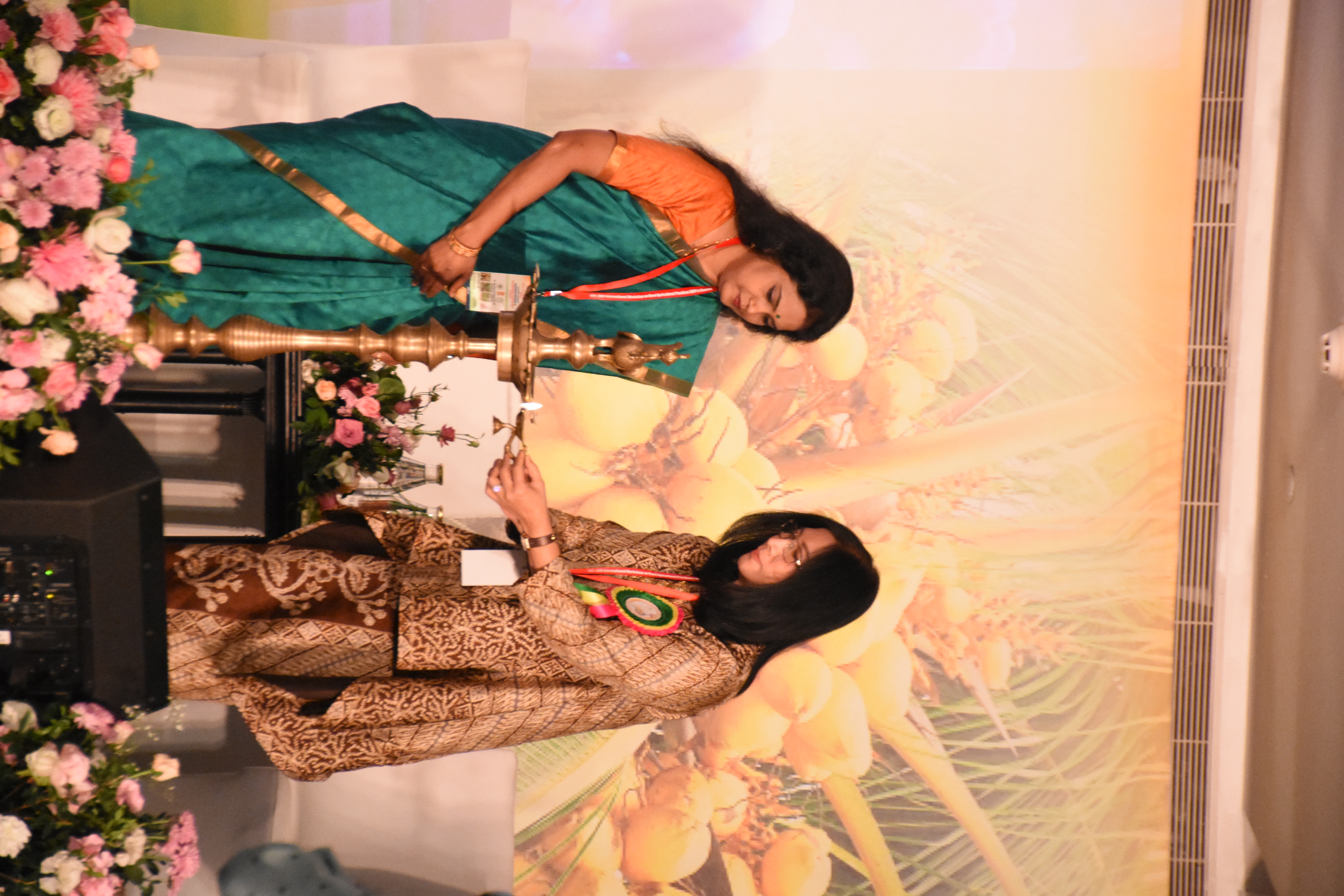
Dr. Jelfina C. Alouw, Executive Director, ICC, delivered the inaugural address and presented the rationales and objectives of the workshop. She mentioned the expected outcomes of the workshop mainly a sustainable and resilient coconut industry with improved environmental management, nut quality and production efficiency that benefit producers & consumers; also improve the coconut farmer’s livelihood and quality coconut-based products (better production, better environment, better market & better life) which is the need of the hour.
Principal Secretary, Horticulture, Government of Karnataka, Mr. Rajendra Kumar Katariya IAS in his address said that the workshop needs to be come up with an road map for a GAP to be followed globally. He added that the countries must follow the program of lab to land in which the technologies developed is to demonstrated in the field for easy adaptation by the farmers for better result. Many international experts are sharing their experience in this platform so the participants can take benefit of this opportunity to take home the latest and updated knowledge with them.
The three day workshop covered in three sessions. Session 1 Good Agricultural Practices in Coconut for Sustainable Development and Innovative Extension Approaches for Promotion of GAP was mainly focused on the country presentations. The session was chaired by Dr. Manish Pande, Director and Head of Quality Council of India and co chaired by Dr. K. Selvaraj, Scientist from ICAR-Natioanl Bureau of Agriculture Insect Resources, Government of India. The country speakers from India, Malaysia, Sri Lanka and Philippines joined physically and experts from Indonesia, Thailand and Vietnam joined virtually. All the seven speakers presented the different GAP practices adopted and strategies/ policies followed in their respective countries with sociological and cultural barriers. The SWOT related to the GAP technologies and way forward also presented.
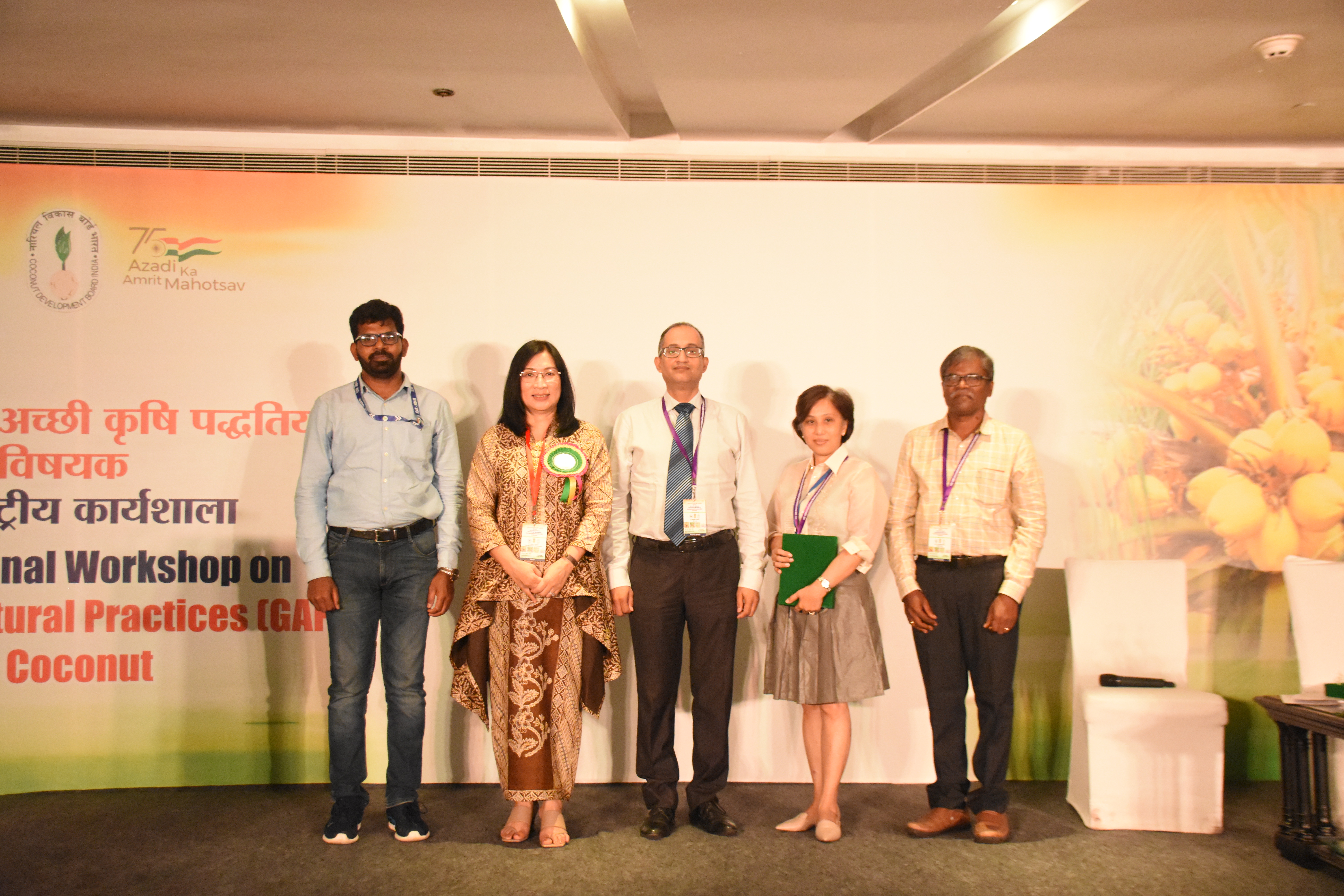
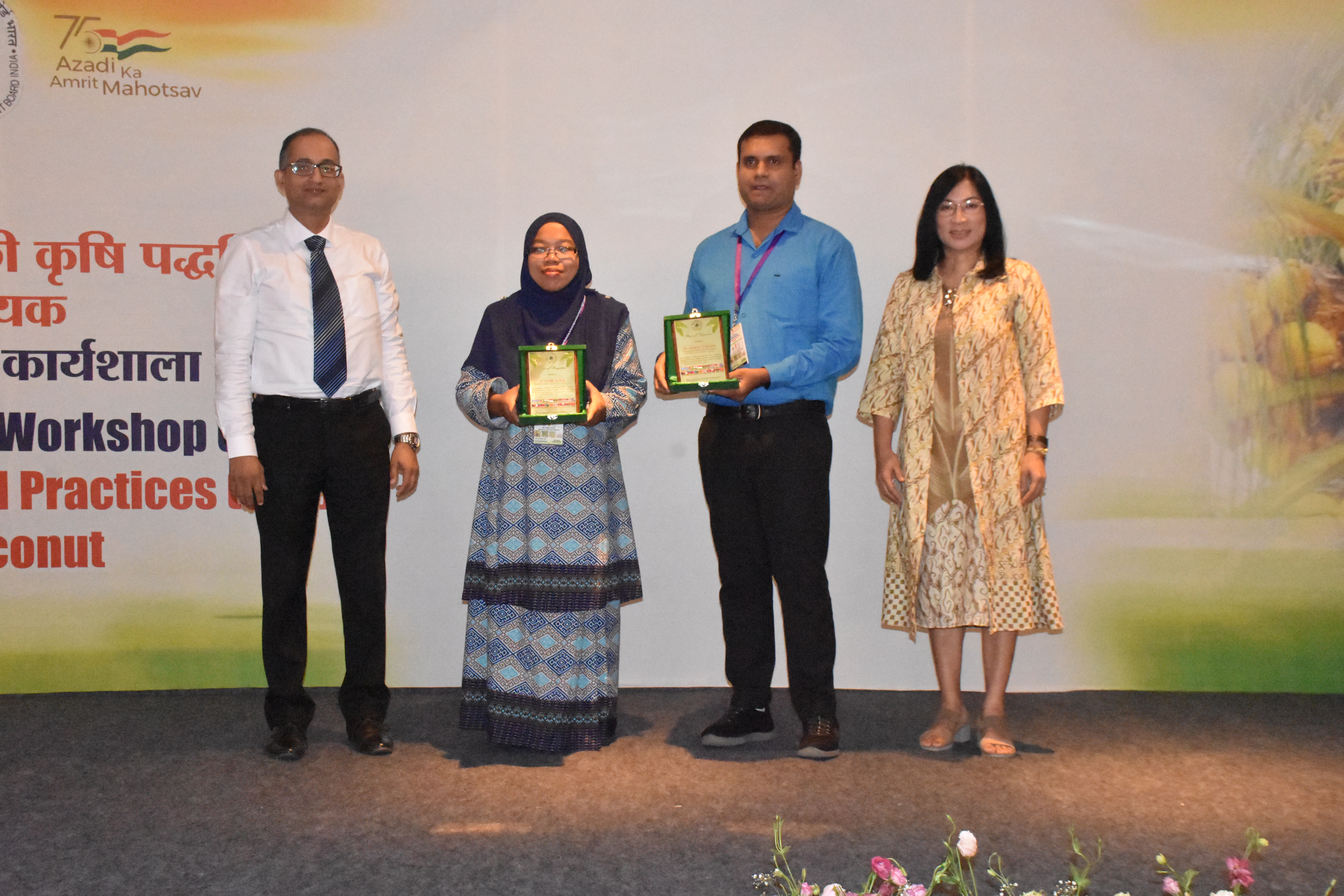
The second session was Moving Towards Sustainable Agriculture - GAP and its Relevance in the Context of Climate Change in which experts from FAO and Quality Council of India presented the different programs and GAP certification procedures to be followed by the stakeholders and farmers. Dr. Pande stressed on four pillars to be considered i.e. food safety, environment management, fair price with workers safety and quality of products and the persons responsible for this are farmers; processors and handlers; the government and consumers. The session was chaired by Dr. Liberty H. Canja, Department Manager, Philippines.
The last and third session on Successful Models Practiced by Progressive Coconut Farmers for Enhancing Productivity & Nut Quality was mainly on the experience sharing by the progressive farmers. The session was chaired by Dr. Thamban, Principal Scientist, ICAR-CPCRI and Dr. Anjana Atapattu, Senior Research Officer, CRI, Sri Lanka. The progressive farmers shared their experinces were Mr. Raam Mohan, N. U. of Umapthy Hybrid Centre, Tiruppur, Tamil Nadu India and Prof. Nelson Pomalingo, Chairman, Coconut Growing Districts, Gorontalo Regency, Indonesia. They shared their experiences and mentioned how important is GAP certification to compete in the global coconut market.
There were open forum and discussions in which the researchers, extension officers, stakeholders and farmers participated. The main output and recommendations of the workshop suggested was to synergies and harmonize the GAP technologies and strategies between the countries which will help the famers to adopt the best technologies for developing sustainable Agriculture. Further the Industries and extension officers to join together to create awareness amongst the farmers thru Farmers Field Schools like in the Philippines by involving the development departments, research institutes and universities. GAP certifications may lead to increase in cost of production wherein farmers needs policy support for better reneumeration for their quality products. Need to develop sustainable viable extension module involving the Farmers Producing Organizations in lining with industry to get better price. There is an urgent need to address the carbon sequestration in coconut in the context of climate change. Forming of GAP network to address the issues with the vision to develop a sustainable, resilient & highly competitive coconut sector. Providing cost-effective and science-based GAP strategies to help growers increase the coconut quantity & quality, by reducing the adverse impacts of land and palm management on human health, environment, and non-target organisms and promoting extreme climate resilient coconut plantation system & sustaining biodiversity which will increase the coconut-based products acceptance in global markets.
The physical session was conluded on 3rd September with the valedictory session addressed by Dr. N. Vijaya Lakshmi, IAS, Chairman CDB and Dr. Jelfina C. Alouw, Executive Director, ICC.
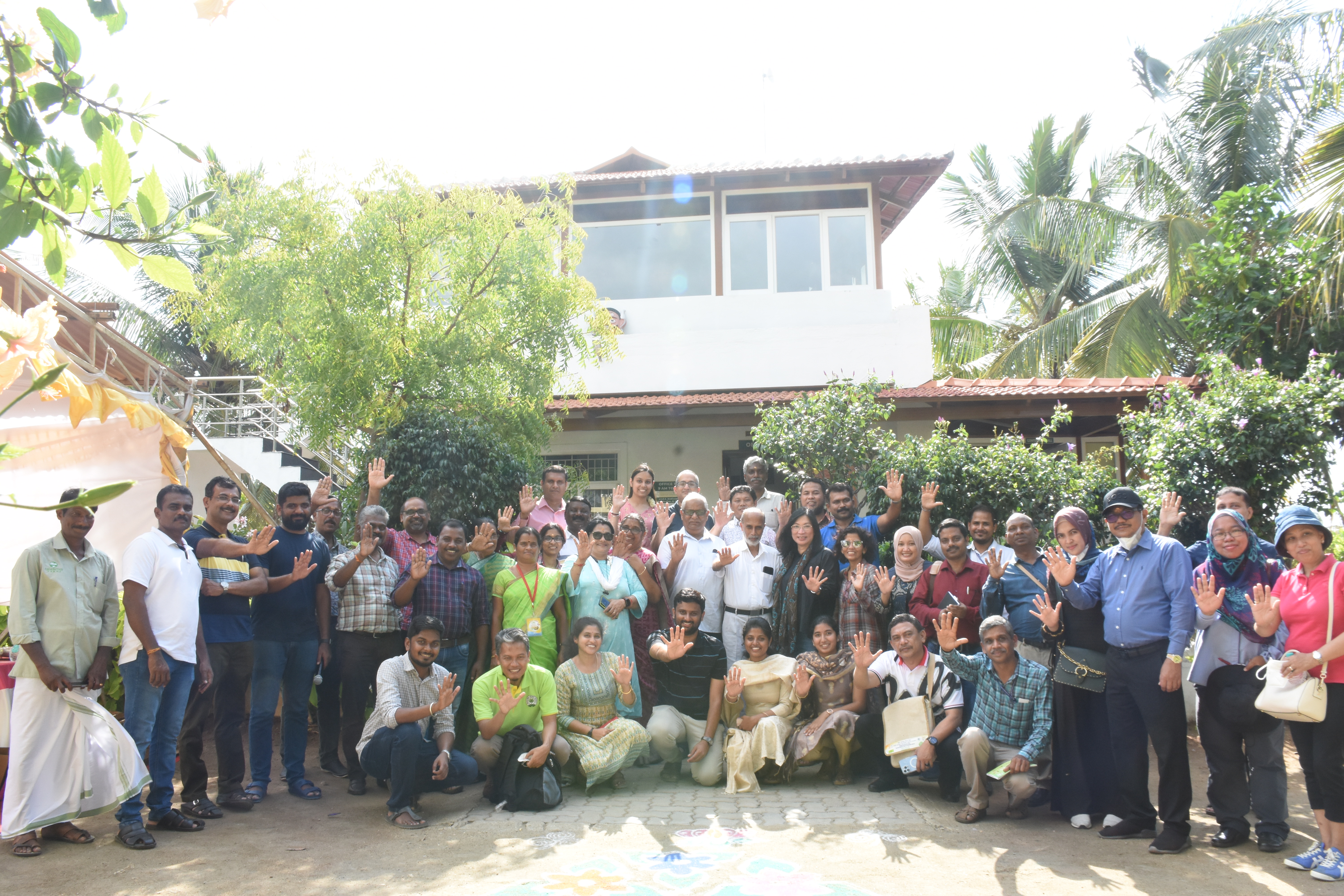
A field visit was arranged on 4th September to the field of Mr. Raam Mohan and Mr. OVR Somasundaram, Tirupur District of Tamil Nadu state. The participants could see the hybridization techniques followed in the Umapathy hybrid centre in which he adopted an integrated farming system with poulty farming. He maintained a big nusery of hybrid coconut seedlings of Raamganga variety in poly bag. Mr. Raam Mohan making coconut sugar and its value added products by tapping neera from his own plantation. He adopted the neera harvesting technology in a controlled condition developed by ICAR-CPCRI. A well maintnied coconut plantation with intercrops of Nutmeg and other fruit crops could see in OVR Farms.
The workshop was an integrated package covering both physical, field visit and exhibitions which give the participants a combined feelings of seeing in believing.

